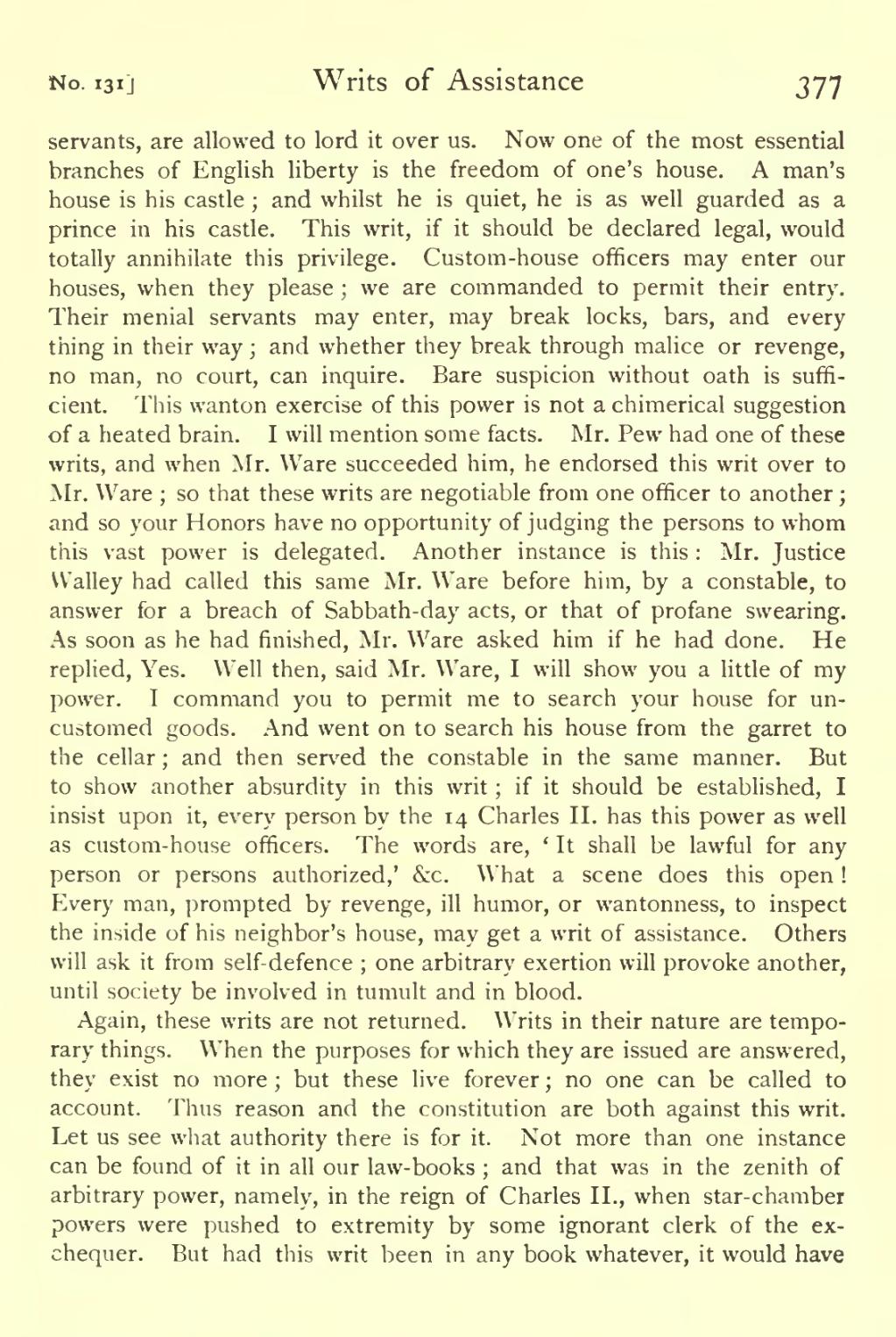servants, are allowed to lord it over us. Now one of the most essential branches of English liberty is the freedom of one s house. A man's house is his castle ; and whilst he is quiet, he is as well guarded as a prince in his castle. This writ, if it should be declared legal, would totally annihilate this privilege. Custom-house officers may enter our houses, when they please ; we are commanded to permit their entry. Their menial servants may enter, may break locks, bars, and every thing in their way ; and whether they break through malice or revenge, no man, no court, can inquire. Bare suspicion without oath is sufficient. This wanton exercise of this power is not a chimerical suggestion of a heated brain. I will mention some facts. Mr. Pew had one of these writs, and when Mr. Ware succeeded him, he endorsed this writ over to Mr. Ware ; so that these writs are negotiable from one officer to another ; and so your Honors have no opportunity of judging the persons to whom this vast power is delegated. Another instance is this : Mr. Justice Walley had called this same Mr. Ware before him, by a constable, to answer for a breach of Sabbath-day acts, or that of profane swearing. As soon as he had finished, Mr. Ware asked him if he had done. He replied, Yes. Well then, said Mr. Ware, I will show you a little of my power. I command you to permit me to search your house for uncustomed goods. And went on to search his house from the garret to the cellar ; and then served the constable in the same manner. But to show another absurdity in this writ ; if it should be established, I insist upon it, every person by the 14 Charles II. has this power as well as custom-house officers. The words are, 'It shall be lawful for any person or persons authorized,' &c. What a scene does this open ! Every man, prompted by revenge, ill humor, or wantonness, to inspect the inside of his neighbor s house, may get a writ of assistance. Others will ask it from self-defence ; one arbitrary exertion will provoke another, until society be involved in tumult and in blood.
Again, these writs are not returned. Writs in their nature are temporary things. When the purposes for which they are issued are answered, they exist no more ; but these live forever ; no one can be called to account. Thus reason and the constitution are both against this writ. Let us see what authority there is for it. Not more than one instance can be found of it in all our law-books ; and that was in the zenith of arbitrary power, namely, in the reign of Charles II. , when star-chamber powers were pushed to extremity by some ignorant clerk of the exchequer. But had this writ been in any book whatever, it would have
